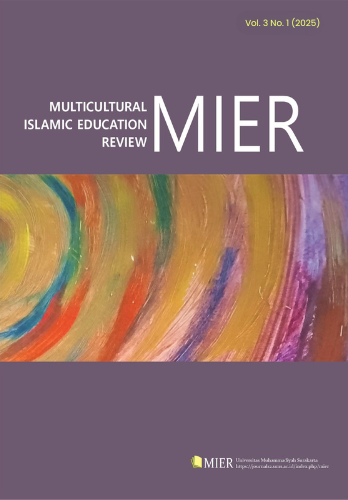Progressive Islamic Education through the Lens of Human Essence: Philosophical Foundations and Transformative Strategies
DOI:
https://doi.org/10.23917/mier.v3i1.9911Keywords:
Islamic Educational Reform, Islamic Philosophers, Character Development, Spiritual Integration, Educational GoalsAbstract
This study explores the lack of integrative frameworks in Islamic education that connect the concept of human essence with holistic educational goals. It aims to formulate a philosophical foundation for Progressive Islamic Education by analyzing the thoughts of four prominent Muslim scholars: Muhammad Iqbal, Syed Muhammad Naquib Al-Attas, Seyyed Hossein Nasr, and Suhailah Hussein. Employing a qualitative content analysis and comparative literature review, the research investigates how each thinker conceptualizes the essence of humanity and translates it into educational principles. The findings reveal that Iqbal emphasizes willpower and self-formation, Al-Attas underscores adab and the hierarchy of knowledge, Nasr integrates spiritual responsibility and ecological ethics, while Hussein highlights critical pedagogy and social transformation. These diverse perspectives converge in proposing an Islamic education that is spiritually grounded, morally conscious, intellectually rich, and socially responsive. The study concludes that integrating these philosophical insights can reorient Islamic education toward a more progressive and transformative model, empowering learners to become ethical individuals and active agents of change in addressing contemporary challenges.
Downloads
Downloads
Submitted
Accepted
Published
How to Cite
Issue
Section
License
Copyright (c) 2025 Fahmi Ulum Al Mubarok, Lutfi Zaki Al Manfaluthi, Annas Dzul Arsyi, Muhammad Rizq Mubarak

This work is licensed under a Creative Commons Attribution 4.0 International License.









